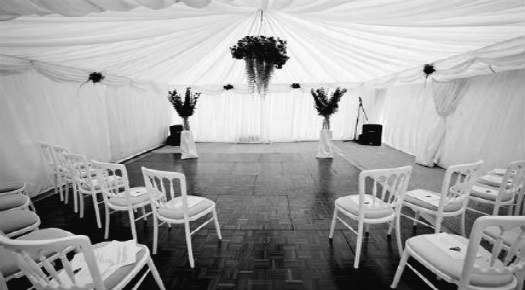
A federal court ruled on July 14 that secular celebrants can now marry humanist couples in Indiana, a practice that was so far considered illegal under state law. The Chicago-based 7th Circuit Court of Appeals said in an unanimous ruling that denying humanists the right to be married by those who share their lack of belief in God amounts to them being denied their First Amendment right to religious freedom.
Under a law that dates back to the 1850s, Indiana required weddings to be conducted by government officials or religious clergy. However, humanist plaintiffs argued that this practice denied them the right to be married by celebrants who share their philosophy and in turn gave religious couples a preferential treatment.
“The court has gotten this exactly right. Whether a person is atheist, agnostic, humanist, or simply doesn’t want a religious wedding, this decision means they can now have these wonderful occasions solemnized by a celebrant who shares their life-stance,” said Reba Boyd Wooden, a humanist and certified secular celebrant who was a plaintiff in the case.
Currently, South Carolina and Maine allow humanists to conduct wedding ceremonies if they become notaries publicly. Now, the federal court has ruled that Indiana must allow the same. There are approximately 24 certified secular celebrants across the United States.
Judge Frank Easterbrook, while writing for the court, said that the former law not only discriminated against humanists but also against members of other religious groups that do not consider a single deity – Jains, Buddhists, Taoists and Shintos.
“It is irrational to allow humanists to solemnize marriages if, and only if, they falsely declare that they are a religion. It is absurd to give the Church of Satan, whose high priestess avows that her powers derive from having sex with Satan, and the Universal Life Church, which sells credentials to anyone with a credit card, a preferred position over Buddhists, who emphasize love and peace…. Like many others, humanists want a ceremony that celebrates their values, not the ‘values’ of people who will say or do whatever it takes to jump through some statutory hoop,” he wrote.
This victory for atheists, humanists and secularists comes after a string of defeats in the recent past, with the Supreme Court allowing public meetings to begin with sectarian prayers in May and exempting corporations from federal law based on their own religious beliefs in June.
“This is a major victory for all secular Americans, who despite being part of the fastest-growing belief demographic in the United States, still suffer from discrimination and the special privileges accorded religion,” said Ronald A. Lindsay, president and CEO of the Center for Inquiry, a humanist organization that certifies secular celebrants.
Photo Credit: Flickr
